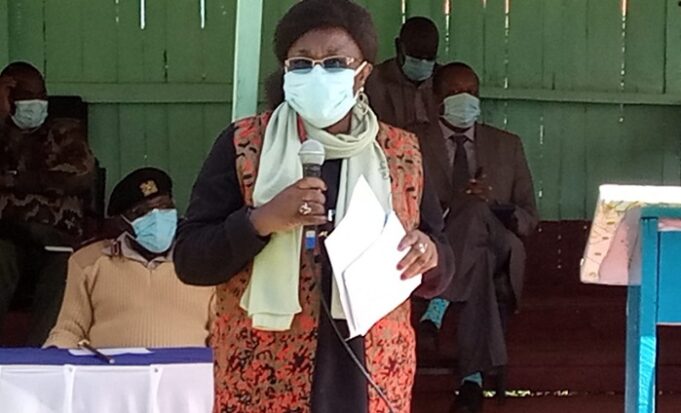CBC Report Proposes Day schooling and Merging schools To Ease The 2023 Double Intake Headache
With the 2023 double intake into secondary schools fast approaching, stakeholders are worried about space, infrastructure and resources.
The Fatuma Chege led taskforce has hinted a major rationalisation of existing infrastructure.This, she said, will include merging some schools, creating space in institutions that have small enrolment data and addition of new classrooms only for specific cases on need basis.
“Even now a lot of arithmetic is going on to know which specific schools require additional infrastructure given that most schools have adequate spaces,” said Chege.
Read also:
Government Not Intending To build Additional classrooms for junior secondary learners
Grade 5 CBC Mock Will Be Multiple Choice
Support CBC Fully Or Watch It Subsidize; Oparanya Warns Government
School Timetables to be reviewed To recover time lost to CBC
New Research Shows That CBC Has Reduced Learners’ Ability To Read In English And Kiswahili
Havi Swears To Challenge CBC In Court
Governor Increases Salaries Of ECDE Teachers by 100 %
This means schools should not expect budgets to construct new classrooms unless there is need. The PS said neighbouring schools will be encouraged to share some of the resources with other government institutions to cut cost and for effective utilisation.
Basic Education Principal Secretary Julius Jwan asked parents not to panic over the looming move by Grade Six to junior secondary, saying transition should never be interpreted to mean change of location.
“We want Kenyans to conceptualise placement not as physical location but in terms of content being taught at that level. It is not a physical thing,” said Jwan.
He said even today, there are schools with Standard One to Form Four classes and what matters is the content change as they progress.
“As much as we shall place children in junior secondary within the existing secondary schools, where we have infrastructure within the existing primary schools we shall place them there,” said Jwan.
Chege said 75 per cent of learners will join day schools. She said during transition to junior secondary, for instance, for a single streamed school, the audit report recommended adding an extra class for 2023 so that they are five classrooms.
“Then as those children go in, we can add another classroom to make it six and that would be it,” said Chege.
However, she said if the school does not have many students and the neighbouring one has a good number, they will be merged.
“This will create space in the remaining school and can be used adequately,” she said.
The PS said the infrastructure audit report found that in most schools there are several classrooms against small students’ enrolment numbers.
“We recommended sharing of resources. CBC has areas that require technical learning and we said if there is a TVET with a workshop nearby why ask a school to build one,” said Chege.
As part of the immediate plans to prepare for the double intake headache, the CBC report has proposed mapping of primary schools against secondary schools with an aim of encouraging day schooling to address the transition challenge.
The report also proposes making provision for primary schools that have adequate infrastructure to establish a junior secondary school.
Broadly, the report recommends that the government undertakes progressive expansion of capacities of existing secondary schools that have adequate land to accommodate more learners in 2023. President Uhuru Kenyatta has asked governors to use their education budgets to support government efforts of expanding spaces in schools.
The president also appealed to MPs to use the National Government Constituency Development Fund allocations to support the programme.
Private schools have also requested to be included in the transition planning to allow them absorb some of the children to avoid congestion in public institutions.
“Let them send capitation per child to those in private schools so that we ease congestion in schools. We need a collaborative approach in managing the grand transition where children will not be private anymore,” said Mutheu Kasanga, the Kenya Private Schools Association national chairperson.
More resources will also be needed to improve infrastructure in universities.
Some 300,000 students who are expected to join the institutions of higher learning may miss out on college slots if adequate infrastructure is not provided.
The CBC report projects that 1.2 million learners presently in Grade 5 will join universities in 2029.
“About 420,000 students will be expected to join university with the assumption that 33 per cent will transit as the remaining 67 per cent join various tertiary institutions,” the report says.




